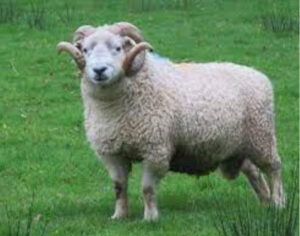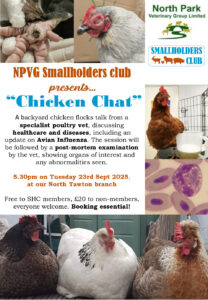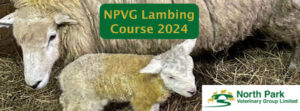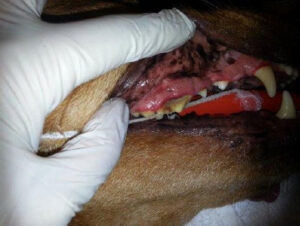
Dental disease affects many of our pets and is often very painful. Unfortunately, our pets are not good at telling us about problems and will continue eating despite the pain.
We can help to reduce dental problems by caring for our pets teeth. In dogs and some cats, the best way is to brush their teeth, this is the gold standard and how we keep our teeth clean. Were this is not possible we can use dental chews for dogs and dental diets for cats and dogs. There are also mouth washes or additives to the water or food that can help to reduce tartar build up.
Tartar build up on teeth can harbour more bacteria that affect the gum and tooth attachments, which can lead to loose, painful teeth. The other common problem we see is broken and chipped teeth in dogs that are painful in themselves and can lead to tooth root abscesses. Often where 1 tooth is affected you can see a build-up of tartar on that side compared to the opposite side as they don’t eat so much on the painful side.
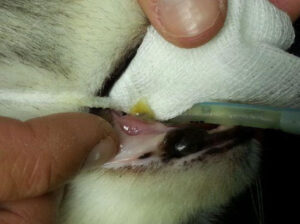
Cats also get a lot of teeth problems, often from resorption lesions which are very painful and affect the base of the crown of the tooth, exposing the tooth root nerve and sometimes weakening the crown of the tooth which breaks off and leaves the roots exposed. They get a lot of inflammation of the gums which is sore and they will often hide the fact that their mouth hurts. This picture shows how the gum is receding and the roots of the tooth are being exposed.
Rabbits are prone to over grown front incisors and sharp edges on the back teeth that will stop them eating properly quite quickly. This needs to be checked and treated quickly because they stop eating.
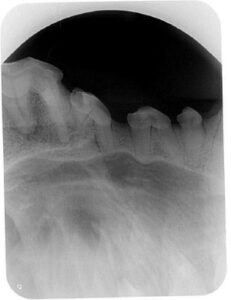
In many cases of dental disease, it is necessary to give our pets an anaesthetic so that we can fully assess the mouth and check for any subtle damage that is causing pain. Where there is dental disease, it is important for our pet’s welfare to treat them quickly and effectively, so in some cases a clean and scale will be enough to halt any dental disease though other times we may need to remove teeth. Until we have anaesthetised our patients we often cannot properly assess the extent of disease and damage to the gums and tooth attachments and to allows us to get dental x-rays to check the tooth roots as well.

